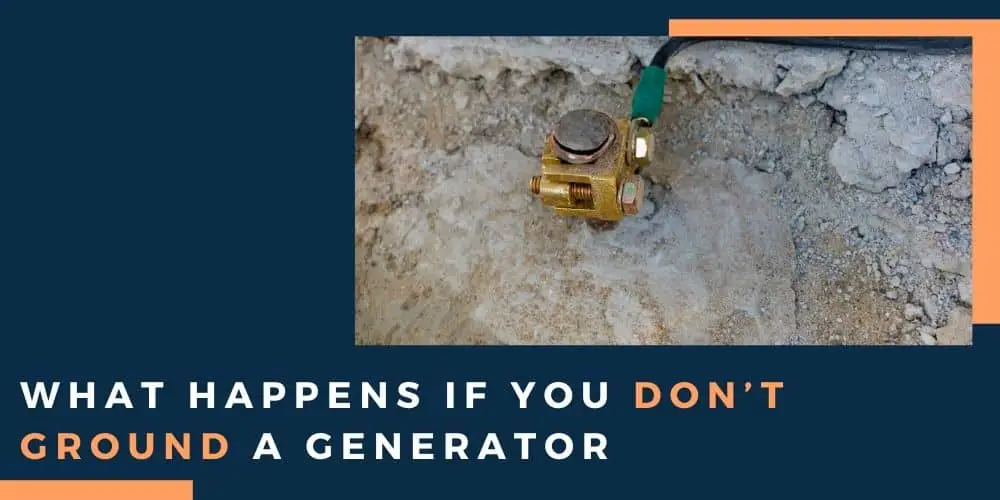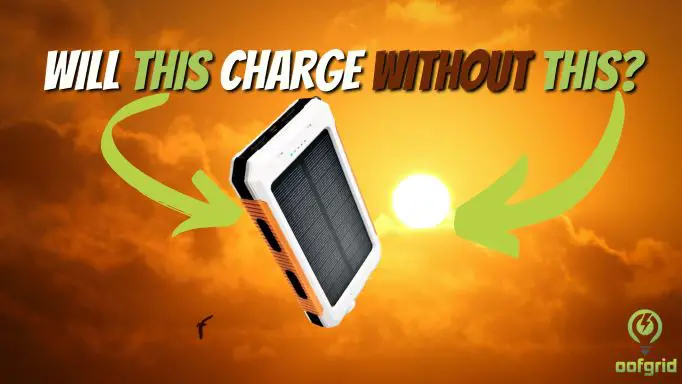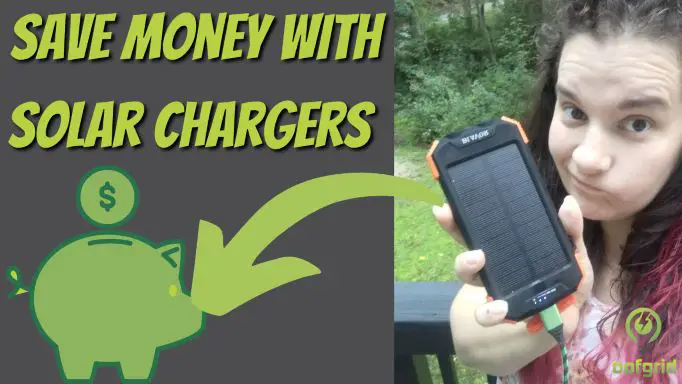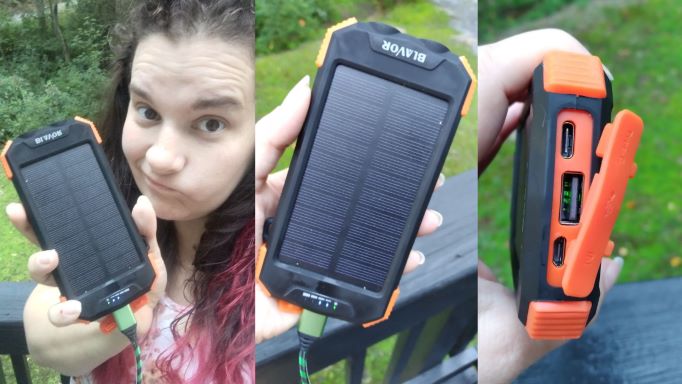Although purchasing a generator is a simple enough task, there are a plethora of safety and maintenance checks that you need to carry out before you can use it.
But with so many things to keep in mind, it can be tempting to skip a few safety measures, and the most common thing that new generator owners choose to overlook is grounding.
This is a potentially disastrous mistake to make, though. Below, we’ll look at what happens if you don’t ground a generator. Once you’ve finished reading, you’re almost certain to never miss this crucial safety check ever again.
Contents
What is Grounding?
Let’s start right at the beginning by looking at what grounding is exactly. Also known as ‘earthing’, it simply means connecting your generator’s neutral conductor to the ground. We’re not talking about exposed earth or bare concrete, though.
Allow us to explain in a little more detail. The connection between your generator’s neutral conductor and the ground is established through a low-resistance ground wire which is connected to an electrode installed in the ground. This is usually a metal rod that has been driven deep into the ground.
All generators, no matter how big or small, need to meet the National Electrical Code’s safety standards, and part of this includes grounding them. The reason for this is that, by grounding a generator, power surges and voltage spikes are redirected safely by feeding the excess electricity into the earth.

The low-resistance ground wire that is connected to the ground electrode provides a clear path for this excess electricity straight to the earth, rather than overloading the generator.
What Happens if you Don’t Ground a Generator?
There are a few things that can happen if you don’t ground a generator, and none of them are issues that you want to deal with!
The first problem that can arise from not grounding a generator is potentially damaging the generator and whatever equipment it’s attached to.
This can be a costly mistake as not only will you have to replace the generator (or at least some of its parts), but you’ll also need to repair the electrical equipment you were using your generator to power.
With overloading and power surges comes the increased risk of electrocution, which can result in a fatality for anybody using the generator or any of the equipment it’s powering.
And, finally, your generator may overheat if it’s unable to dissipate excess electrical energy into the ground. In turn, this can create an electrical fire.
To put things in the simplest terms possible, if you don’t ground a generator then you have no protection from voltage spikes or power surges.
But, by creating a connection between the generator’s neutral ground wire and a ground electrode, this excess energy is released safely and there is a dramatically reduced risk of any of the above issues occurring.
Read ” How to ground a generator when camping here “
Can You Ground a Generator Without a Ground Electrode?
There are no exceptions when it comes to grounding a generator, but there are some models that don’t require a ground electrode to ground them. However, this mostly applies to construction sites.
The OSHA (Occupational Safety and Health Administration) has outlined certain requirements that mean you don’t have to ground a portable generator with a ground electrode. These requirements are:

- You are connecting your electrical equipment to the generator’s sockets
- There is a low-resistance bonding to the generator’s non-current carrying parts (such as the fuel tank or engine)
- There is a low-resistance bonding to the generator’s ground conductor terminals within the sockets
- You’re using a neutral-bonded generator. This means that its neutral conductor is connected directly to the frame.
In all of these circumstances, the generator’s frame acts as a ground electrode. This essentially means that it is ‘self-grounding’, and you don’t have to do anything in terms of grounding it yourself.
When Should You Use a Ground Electrode?
The requirements listed above only apply to construction sites and if your generator’s neutral conductor isn’t connected to the frame, then you need to use a ground electrode. This also means that you have what’s known as a ‘floating neutral generator’.
These are the most common types of generators used in homes and businesses, and these absolutely have to be connected to a ground electrode.
Do I Need to Ground a Portable Generator?
Aside from those generators that meet the requirements set out by the OSHA, all generators need to be grounded. This includes portable generators.
So, even if you own a small generator that you only use once in a while, you still need to make sure that it is grounded before you power it on.

As we’ve mentioned above, doing this will prevent it from overheating and allow it to safely dissipated voltage spikes and electrical surges. If you don’t ground a portable generator, you’ll be putting your home and your family at risk.
Grounding kits
| Image | Title | Price | Buy |
|---|---|---|---|
 Top
Top | Ground Rod 3/8''x4', Grounding Stake | Latest Price On Amazon | |
 Top
Top | Field Guardian Complete Grounding Kit - 2ft | Latest Price On Amazon | |
 Top
Top | THE CIMPLE CO - 4ft Copper Grounding Rod - 3/8" Diameter | Latest Price On Amazon | |
 Top
Top | Westinghouse 70641 10-Feet Fixture Ground Wire | Latest Price On Amazon | |
 Top
Top | Patriot Electric Fencing Ground Rod T Handle 30in | Latest Price On Amazon | |
 Top
Top | Ground Rod 3/8''x4', Grounding Stake | Latest Price On Amazon | |
 Top
Top | Green THHN Wire - 10 AWG - 25 Feet - Solid Copper Grounding Wire | Latest Price On Amazon |
Final Word
The purpose of a generator, whether portable or permanently installed, is to provide electricity. And, electricity needs to be handled with the utmost care.
Grounding your generator will ensure that it can safely handle any voltage spikes or electrical surges by passing them into the ground, rather than overheating the generator or electrical system.
If you don’t ground a generator, you’ll not only be increasing the risk of causing damage to the devices you’re using, but you’ll also be increasing the risk of electrocution and fire. For these reasons, we cannot stress enough how important it is to ground your generator.
Don’t be fooled by the size of your generator, either. Even the smallest, portable generators need to be grounded. The only exceptions to this rule are the regulations outlined by the OSHA, which you can find listed above.
So, whenever you’re carrying out all of the safety checks and maintenance tasks that come with owning a generator, making sure you’ve grounded it correctly should be right at the top of your list.
This won’t only keep you and your home safe but will ensure your generator can provide you with power for a long time.






